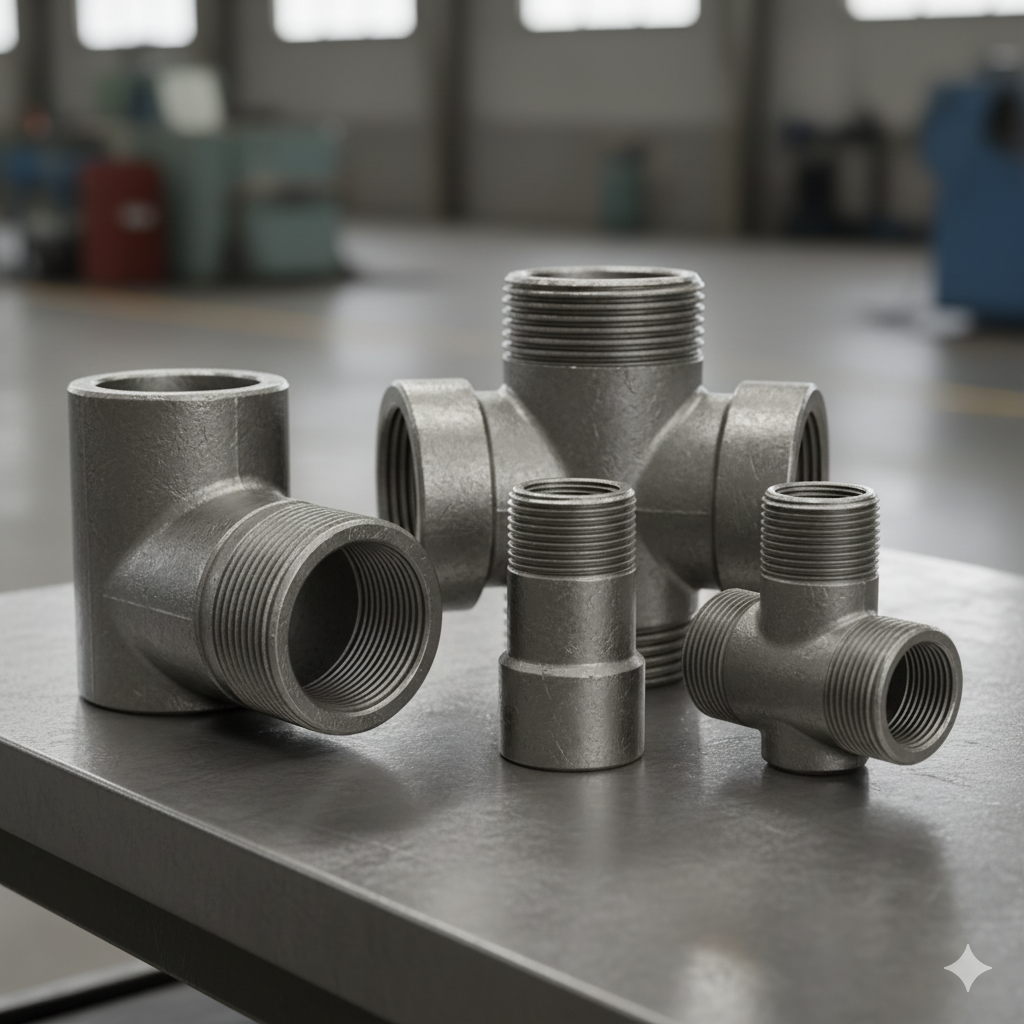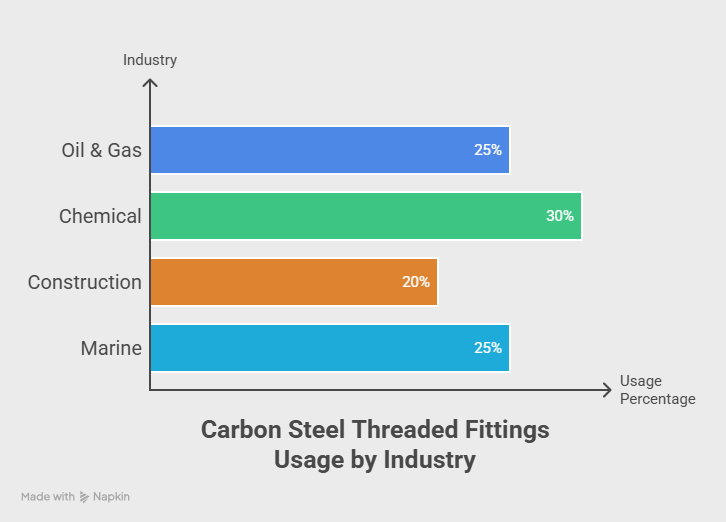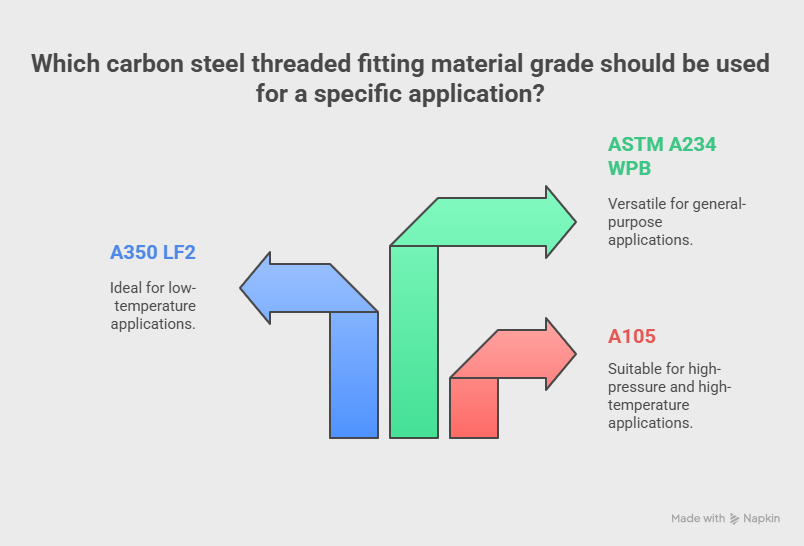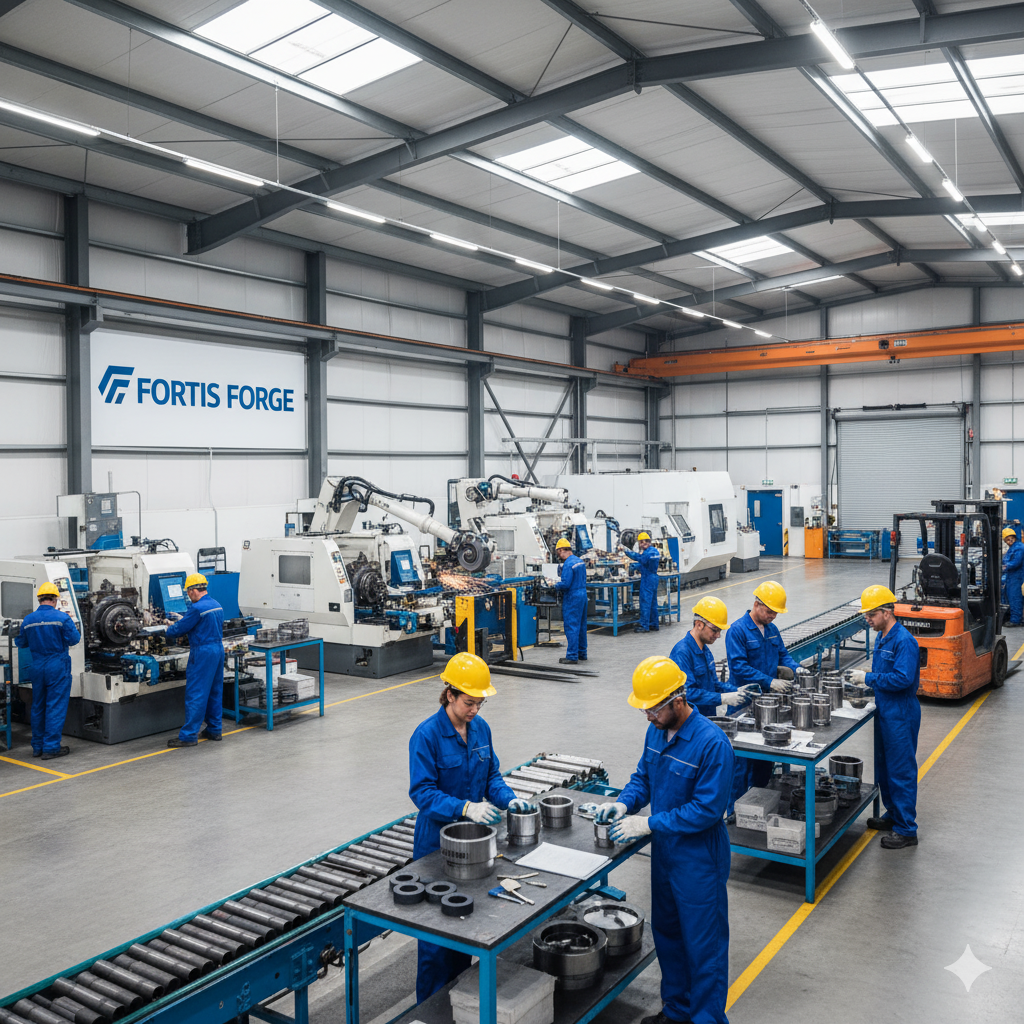Introduction
Carbon steel threaded fittings are essential components in piping systems. They connect pipes securely and provide leak-free solutions. Their strength and corrosion resistance make them suitable for high-pressure applications.
Threaded fittings offer simple installation without welding. They are widely used in industrial, commercial, and residential projects. Fortis Forge focuses on manufacturing fittings that meet global standards.

What Are Carbon Steel Threaded Fittings?
Carbon steel threaded fittings are pipe connectors made from carbon steel. They include elbows, tees, couplings, and reducers. Threads allow pipes to join without additional tools or adhesives.
Elbows: Change pipe direction.
Tees: Split or combine flow.
Couplings: Connect two pipes in a straight line.
Reducers: Join pipes of different diameters.
These fittings handle high pressure and temperature, making them ideal for oil and gas pipelines.
Advantages of Carbon Steel Threaded Fittings
Carbon steel threaded fittings offer several advantages over other materials.
High Strength – Carbon steel ensures long-lasting durability.
Corrosion Resistance – With proper coatings, these fittings resist rust and oxidation.
Ease of Installation – Threaded connections require minimal tools and labor.
Cost-Effective – Durable fittings reduce maintenance costs.
Versatility – Suitable for industrial, commercial, and residential use.
Applications of Carbon Steel Threaded Fittings
These fittings are used across multiple industries.
Oil and Gas Industry – High-pressure pipelines rely on carbon steel threaded fittings.
Chemical Industry – Resistant to chemical reactions and corrosion.
Construction – Used in water supply and HVAC systems.
Marine Applications – Withstands saltwater and harsh conditions.

Installation Guidelines
Proper installation ensures efficiency and prevents leaks. Follow these steps:
Clean the threads to remove dirt and oil.
Apply thread sealant or PTFE tape.
Screw the fitting by hand until tight.
Use a wrench to secure without over-tightening.
Over-tightening may damage threads, leading to leaks or failure.
Material Grades and Standards
Fortis Forge adheres to ASTM and ASME standards. Common grades include:
A105 – Standard carbon steel for high-temperature service.
A350 LF2 – Low-temperature carbon steel.
ASTM A234 WPB – Wrought carbon steel for pressure piping.

Choosing the Right Fitting
Consider these factors before selecting a fitting:
Pressure Rating – Match fittings with system pressure.
Temperature Rating – Ensure material withstands operating temperature.
Thread Type – NPT threads are common in North America.
Corrosion Protection – Galvanized or coated fittings resist rust.
Selecting the right fitting prevents costly repairs and downtime.
Maintenance and Longevity
Carbon steel threaded fittings require minimal maintenance.
Inspect connections regularly for leaks.
Reapply thread sealant if disassembled.
Keep fittings clean and free from debris.
Proper maintenance extends service life and ensures safe operation.
Why Choose Fortis Forge?
Fortis Forge manufactures top-quality carbon steel threaded fittings. We ensure:
Compliance with international standards.
Durable and reliable products.
Excellent customer support.
Our fittings undergo strict quality checks to guarantee performance in demanding environments.

Conclusion
Carbon steel threaded fittings are strong, durable, and versatile. They are crucial for high-pressure and high-temperature piping systems. Fortis Forge provides reliable solutions with high-quality fittings, ensuring safety and efficiency.
Investing in carbon steel fittings reduces maintenance costs and increases system longevity. Choose Fortis Forge for premium fittings that meet global standards.
